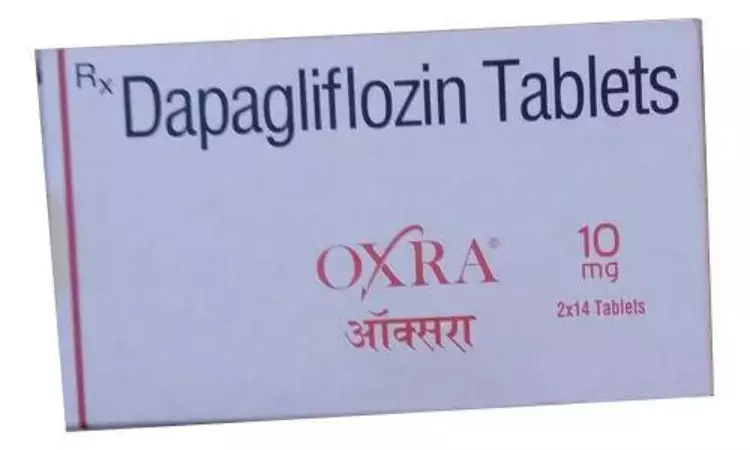- Home
- Medical news & Guidelines
- Anesthesiology
- Cardiology and CTVS
- Critical Care
- Dentistry
- Dermatology
- Diabetes and Endocrinology
- ENT
- Gastroenterology
- Medicine
- Nephrology
- Neurology
- Obstretics-Gynaecology
- Oncology
- Ophthalmology
- Orthopaedics
- Pediatrics-Neonatology
- Psychiatry
- Pulmonology
- Radiology
- Surgery
- Urology
- Laboratory Medicine
- Diet
- Nursing
- Paramedical
- Physiotherapy
- Health news
- Fact Check
- Bone Health Fact Check
- Brain Health Fact Check
- Cancer Related Fact Check
- Child Care Fact Check
- Dental and oral health fact check
- Diabetes and metabolic health fact check
- Diet and Nutrition Fact Check
- Eye and ENT Care Fact Check
- Fitness fact check
- Gut health fact check
- Heart health fact check
- Kidney health fact check
- Medical education fact check
- Men's health fact check
- Respiratory fact check
- Skin and hair care fact check
- Vaccine and Immunization fact check
- Women's health fact check
- AYUSH
- State News
- Andaman and Nicobar Islands
- Andhra Pradesh
- Arunachal Pradesh
- Assam
- Bihar
- Chandigarh
- Chattisgarh
- Dadra and Nagar Haveli
- Daman and Diu
- Delhi
- Goa
- Gujarat
- Haryana
- Himachal Pradesh
- Jammu & Kashmir
- Jharkhand
- Karnataka
- Kerala
- Ladakh
- Lakshadweep
- Madhya Pradesh
- Maharashtra
- Manipur
- Meghalaya
- Mizoram
- Nagaland
- Odisha
- Puducherry
- Punjab
- Rajasthan
- Sikkim
- Tamil Nadu
- Telangana
- Tripura
- Uttar Pradesh
- Uttrakhand
- West Bengal
- Medical Education
- Industry
Dapagliflozin benefits Heart failure patients Independent of baseline kidney function: JAMA

Massachusetts: According to research published in JAMA Cardiology, baseline renal function did not alter the benefit of dapagliflozin in individuals with heart failure and a modestly reduced or preserved ejection fraction.
According to Finnian R. Mc Causland, Department of Medicine, Brigham and Women's Hospital and colleagues, "The benefits of dapagliflozin, in addition to standard treatments, to minimize cardiovascular events and cease kidney function loss are seen across the spectrum of baseline kidney illness."
In individuals with heart failure and a mildly decreased or retained ejection fraction, chronic kidney disease (CKD) is considered to afflict 50% of patients. When compared to individuals without CKD, people with CKD have a higher chance of negative outcomes, such as heart failure hospitalization and cardiovascular mortality. It is well established that, in individuals with heart failure and a poor ejection fraction, sodium-glucose cotransporter 2 inhibitors lower heart failure incidents and prevent the progression of renal disease.
The goal of the study was to examine the impact of baseline renal disease among those who had heart failure and a modestly reduced or preserved ejection fraction included in the Dapagliflozin Evaluation to Improve the Lives of Patients With Preserved Ejection Fraction Heart Failure (DELIVER) trial.
This was a predetermined analysis of the DELIVER randomized clinical study that was carried out between July 1 and September 18, 2022. Patients having an estimated glomerular filtration rate (eGFR) of at least 25 mL/min/1.73 m2 and an ejection fraction greater than 40% were included in this worldwide, multicenter research. As an intervention, either 10 mg of dapagliflozin per day or a placebo was provided.
Results were evaluated to see if baseline renal function altered the primary outcome's response to therapy (cardiovascular death or worsening heart failure). The impact of therapy on eGFR slope and a post hoc composite kidney outcome (first eGFR 50% fall from baseline; first eGFR 15 mL/min/1.73 m2; end-stage kidney disease; death from kidney causes) was also investigated.
Key findings of the trial:
- Dapagliflozin's impact on the primary endpoint was unaffected by the eGFR category at baseline (eGFR ≥60 mL/min/1.73 m2: hazard ratio [HR], 0.84; 95% CI, 0.70-1.00; eGFR 45-<60 mL/min/1.73 m2: HR, 0.68; 95% CI, 0.54-0.87; eGFR <45 mL/min/1.73 m2: HR, 0.93; 95% CI, 0.76-1.14; P for interaction = .16).
- The incidence rate of the renal composite outcome over a median (IQR) follow-up of 2.3 (1.7-2.8) years was modest (1.1 occurrences per 100 patient-years) and was unaffected by dapagliflozin treatment (HR, 1.08; 95% CI, 0.79-1.49).
- eGFR decreased from baseline (difference, 0.5; 95% CI, 0.1-0.9 mL/min/1.73 m2 per year; P =.01) and from month 1 to month 36 (difference, 1.4; 95% CI, 1.0-1.8 mL/min/1.73 m2 per year; P< .001). Dapagliflozin mitigated this reduction.
Following the initial anticipated acute reduction in eGFR, dapagliflozin, when compared to placebo, delayed the longer-term reduction in eGFR, with more substantial effects among patients with baseline diabetes than those without.
With identical rates of adverse events in patients receiving dapagliflozin or placebo at all levels of kidney function, the authors concluded that treatment with dapagliflozin delayed the rate of decline in eGFR when compared to placebo.
As SGLT2 inhibitors become the standard of care for all patients with heart failure, the parallel advantages on cardiovascular outcomes and kidney function should reassure clinicians, they noted.
REFERENCE
Mc Causland FR, Claggett BL, Vaduganathan M, et al. Dapagliflozin and Kidney Outcomes in Patients With Heart Failure With Mildly Reduced or Preserved Ejection Fraction: A Prespecified Analysis of the DELIVER Randomized Clinical Trial. JAMA Cardiol. Published online November 03, 2022. doi:10.1001/jamacardio.2022.4210
Dr Kamal Kant Kohli-MBBS, DTCD- a chest specialist with more than 30 years of practice and a flair for writing clinical articles, Dr Kamal Kant Kohli joined Medical Dialogues as a Chief Editor of Medical News. Besides writing articles, as an editor, he proofreads and verifies all the medical content published on Medical Dialogues including those coming from journals, studies,medical conferences,guidelines etc. Email: drkohli@medicaldialogues.in. Contact no. 011-43720751


